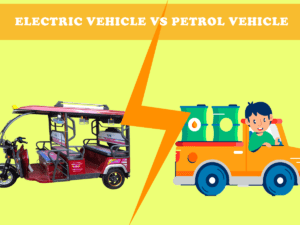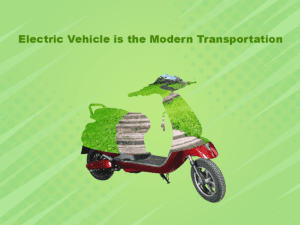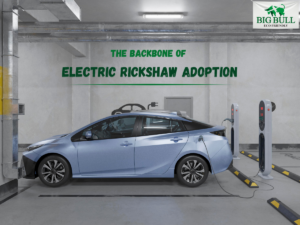Transportation has advanced significantly in recent years, especially when it comes to urban commute. Due to the growing environmental awareness and need for more environmentally friendly forms of transportation, electric scooters have become a well-liked substitute for conventional scooters that run on gasoline. With each choice having pros and cons of its own, the argument between electric scooter vs petrol scooter has gained traction among commuters. To assist you in selecting the best scooter for your requirements and tastes, let’s examine these two debates in more details.
Table of Contents
ToggleEnvironmentally friendly
The environmental friendliness of electric scooters is one of the main elements determining consumer preference. Rechargeable batteries power electric scooters, which emit no pollutants when in use. Because of this they are a desirable option for people who want to lessen their carbon footprint and help the environment. However, because their combustion engines run on gasoline, petrol scooters contribute to air pollution and environmental deterioration by releasing pollutants including carbon dioxide and nitrogen oxides. In electric scooter vs petrol scooter, electric scooter wins in ecologically environment.
Cost-effective

The cost of operation is a certain advantage of electric scooters. Because most places have lower power costs than gasoline prices, they are far less expensive to operate than petrol scooters. Moreover, because electric scooters have fewer moving parts and simpler mechanics, they require less regular service and repairs, which lowers maintenance costs. On the other hand, frequent maintenance and fuel refills are necessary for petrol scooters, which might result in increased long-term costs. Cost is the main factor when it comes with electric scooter vs petrol scooter.
Performance and range
In terms of speed and range, gasoline scooters frequently outperform electric scooters in terms of performance. Compared to most electric scooters, petrol-powered engines usually offer longer ranges between tanks and higher top speeds. But battery life and performance on electric scooters have significantly improved as a result of technological developments. While many contemporary electric scooters may travel a fair distance on a single tank of fuel, they may not be able to match the high speeds and ample range of petrol scooters for everyday commuting. In the phase of electric scooter vs petrol scooter, when it is performance and range both are in the same level.
Noice and convenience
When compared to the audible hum of petrol engines, electric scooters run silently and provide a calm and serene ride. This silent functioning has advantages, particularly in cities where noise pollution is an issue. Also compared to their gasoline-powered counterparts, electric scooters frequently have less regulatory constraints in some locations, making it possible for users to pass through noise-restricted zones without any problems. We all know that when it comes about noise in the race of electric scooter vs petrol scooter electric scooter wins it.
Charging infrastructure and accessibility

Infrastructure for charging electric scooters is not always readily available or easily accessible, which presents a hurdle. Longer rides may find it difficult to find charging facilities for electric scooters in some areas unlike gas stations which are widely available. To improve accessibility and convenience for owners of electric scooters, governments and companies are investing in expanding charging networks in response to the growing popularity of electric vehicles, including scooters. Here is when the debate of electric scooter vs petrol scooter comes.
Acceleration and Torque
Electric motors produce instant torque, electric scooters are renowned for their rapid acceleration. When opposed to petrol scooters, which may have a tiny lag before reaching their maximum power output, they frequently offer smoother and more instantaneous acceleration.
Maintenance Complexity:
Compared to gasoline scooters, electric scooters often have fewer parts that are susceptible to wear and tear. Their motors have fewer moving components, which means they need less maintenance and fewer parts that could eventually need to be replaced. In this maintenance part if we keep a look in the electric scooter vs petrol scooter both gives a great maintenance power bur electric scooter wins anyway.
Ride Quality for Electric Scooter

Because of its design and electric motor characteristics, electric scooters typically provide a smoother and more comfortable ride. Compared to certain petrol scooters, they frequently have stronger suspension systems that absorb shocks more effectively, making for a more enjoyable ride, especially on rough or uneven terrain.
Weight and Handling:
Because electric scooters do not have combustion engines or fuel tanks, they are often lighter than their gasoline-powered counterparts. Because of their reduced weight, they are easier to handle and maneuver in confined spaces and are nimbler in crowded city traffic.
Instant Power Delivery:
As soon as the throttle is pressed, electric scooters start to deliver power instantly, making for a predictable and responsive riding experience. On the other hand, because internal combustion engines are different, there may be a tiny delay in power delivery for scooters that run on gasoline.
Battery Range Anxiety:
“Range anxiety” is a major worry for owners of electric scooters. In comparison to gasoline scooters, electric scooters may have shorter ranges depending on the battery capacity. It’s possible for riders to worry about running out of juice in the middle of a trip, particularly if they’re going farther or in a location with less convenient charging stations.
Charging Time vs. Refuelling Time:
Refuelling an electric scooter in India requires more time than refuelling a gasoline scooter. Petrol scooters may be quickly refuelled at a gas station, whereas electric scooters typically require several hours to fully charge, depending on the charger’s speed and battery size.
Initial Purchase Cost:
Electric motor and battery technology are more expensive than those of gasoline scooters, electric scooters may often have more upfront costs. But in the long run, electric scooters’ cheaper running expenses might make up for this one-time investment.
Infrastructure Dependence: The infrastructure for charging electric scooters is crucial. In the absence of a close charging station, users may find it difficult to use their electric scooters for prolonged periods of time. On the other hand, petrol scooters have the benefit of being more adaptable for long-distance travels without infrastructural restrictions because they can be refuelled at many gas stations.
Conclusion
In conclusion, a variety of considerations, such as convenience, cost effectiveness, performance requirements, and environmental concerns, influence the decision between an electric scooter vs petrol scooter. While petrol scooters offer better speeds and longer ranges, electric scooters excel in terms of environmental friendliness, reduced running costs, and quieter operation. The choice ultimately comes down to personal tastes, intended use, and the accessibility of charging infrastructure in your location. Both gas and electric scooters should see more advancements as technology moves forward, meeting a greater range of consumer demands and tastes.






